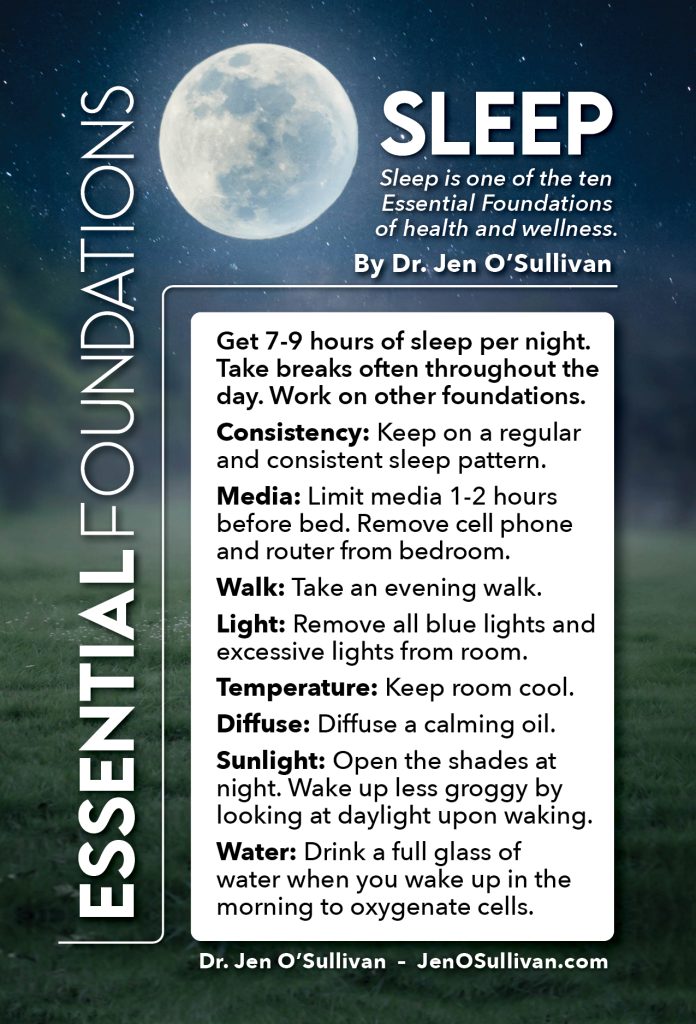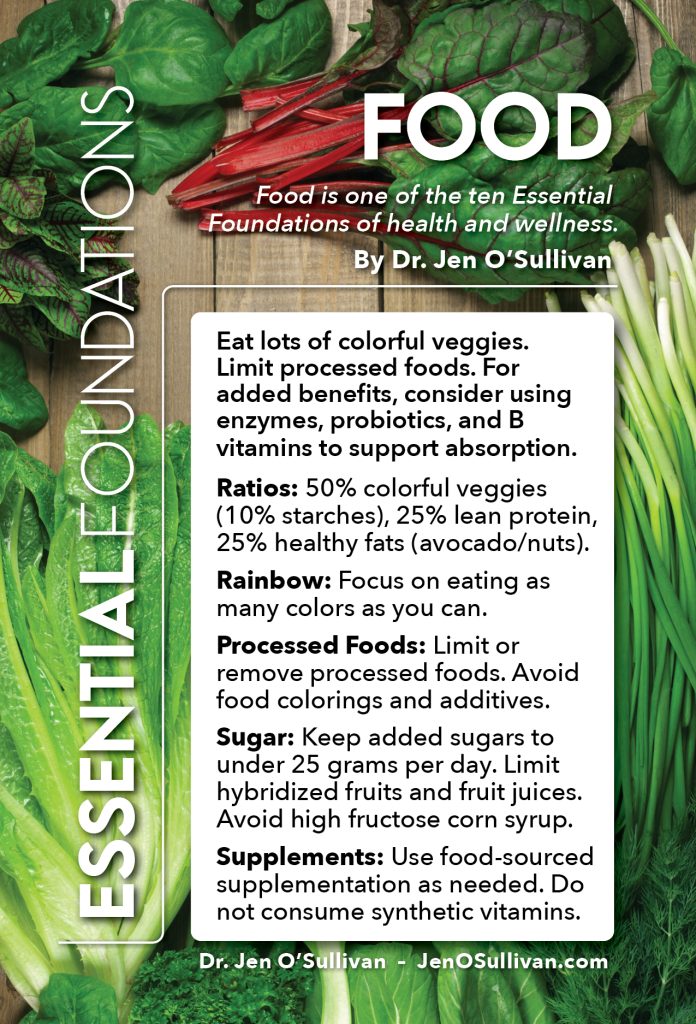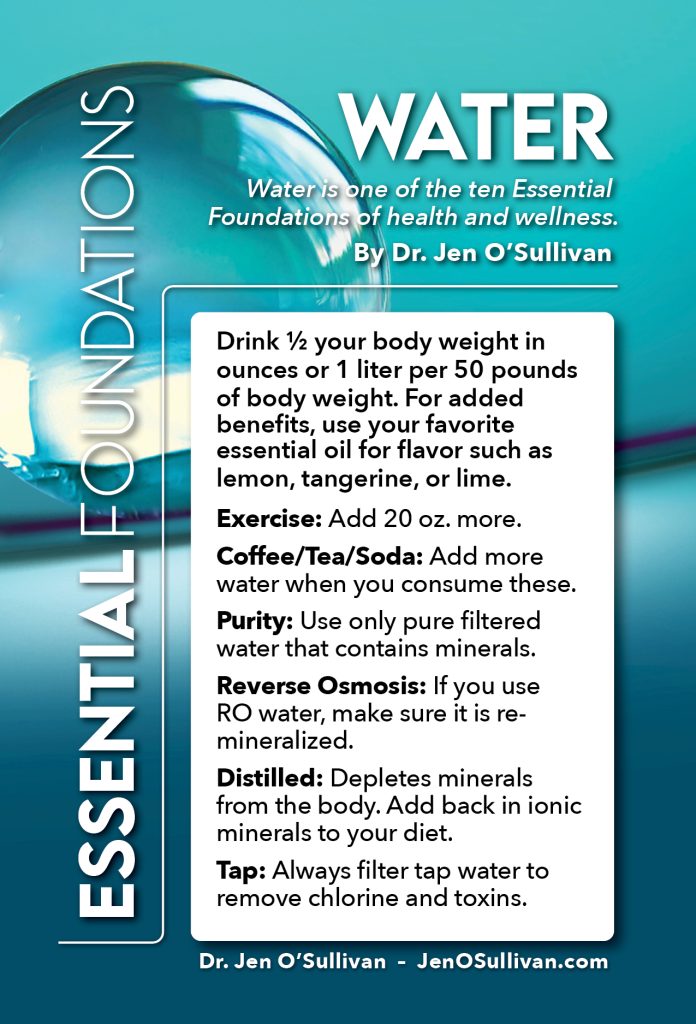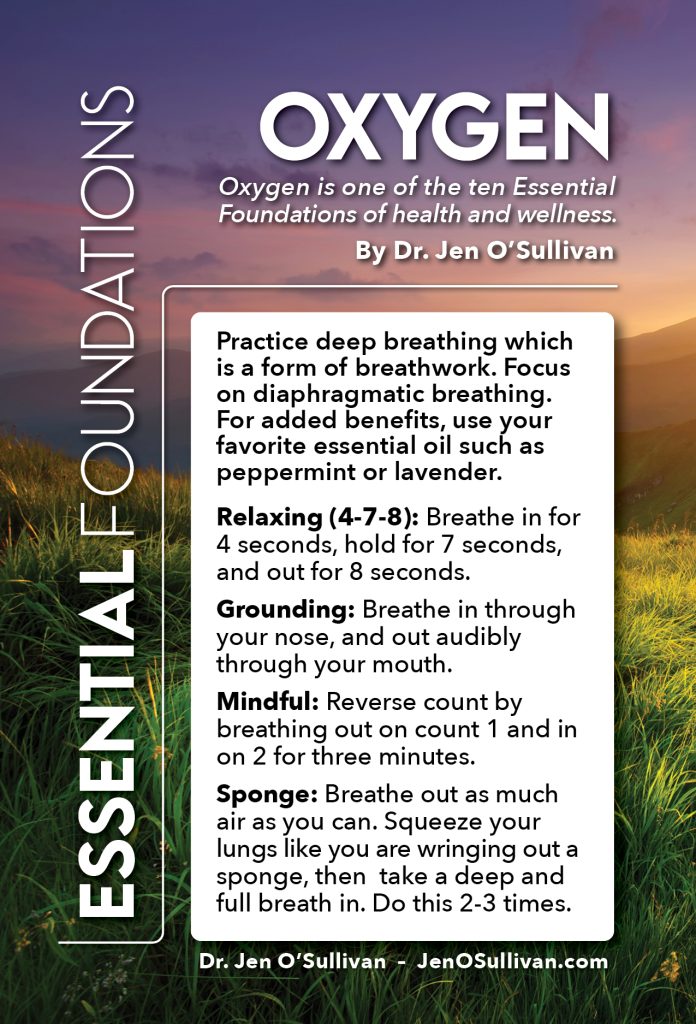By Dr. Jen O’Sullivan
Sleep deprivation (getting less than 7 hours per session) is a major contributor to your body’s inability to adapt to stress. The more sleep you get, the better you body is able to combat stress. When you are chronically sleep deprived, you are operating as if you had two glasses of wine (source).
Two key elements to proper sleep is to get 7-9 hours of solid sleep per night, and during the day take breaks often and remember to rest.
Sleep training: If you have not been able to get 7-9 hours of sleep per night, go to bed one hour earlier than normal for one week at a time until you are getting proper sleep. For example, if you tend to only get six hours per night and would like to get eight, go to bed one hour earlier than normal for one week and then on week two go to bed two hours earlier.
Ways to improve the quality and duration of your sleep:
- Consistency: Keep on a consistent schedule.
- Disturbances: Wear earplugs if necessary.
- Media: Limit media 1-2 hours before bed. Remove cell phone and router from bedroom.
- Light: Remove all blue lights from room.
- Sunlight: Open the shades at night. Wake up less groggy by looking at daylight.
- Food: Do not eat a large meal just before bed. A small snack is alright as long as it is under 6 grams of total sugar.
- Water: Drink a full glass of water when you wake up in the morning to oxygenate cells.
- Women: Women need 15-60 minutes more sleep than men due to multitasking.






